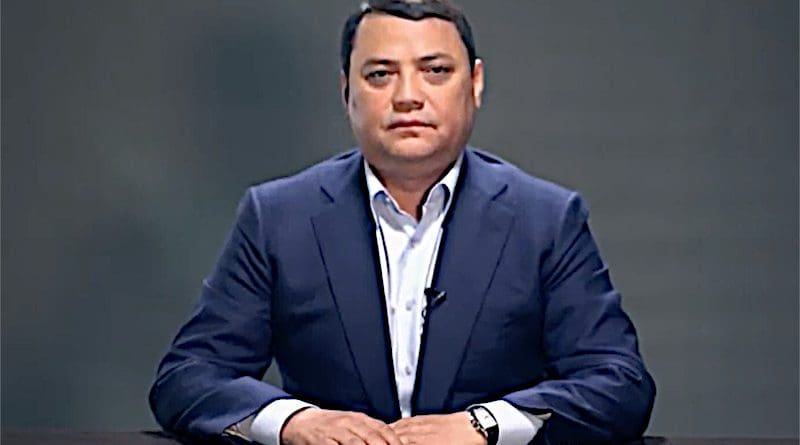Kyrgyzstan: Customs Kingpin Behind Vast Smuggling Operation Gets $3,000 Fine
By Eurasianet
(Eurasianet) — A court in Kyrgyzstan has handed a $3,000 fine to a powerful former customs officials accused by anti-corruption activists of spiriting around $700 million of funds gained from smuggling operations out of the country.
Gulzat Dyikanbayeva, a judge at the Pervomaisky District Court in Bishkek, on February 11 ruled that Rayimbek Matraimov, who was fired in late 2017 from his job as deputy head of the Customs Service, was guilty of engaging in corrupt practices. She decided, however, that the financial compensation he is said to have paid the state was a largely sufficient penalty.
Meanwhile, a freeze slapped on assets owned by Matrimov, including apartments in the cities Bishkek and Osh, his cottage overlooking Issyk-Kul Lake, a Lexus 460 luxury sedan and multiple bank accounts, have been lifted.
Matraimov earlier in the day filed a guilty plea in court. In contrast with typical corruption cases in Kyrgyzstan, which are drawn-out affairs extending over weeks and months, court proceedings against Matraimov lasted all of 50 minutes.
The ruling is already provoking profound dismay over what looks like little more than a little slap on the wrists. But although the verdict may shock, it will probably not surprise.
It did raise eyebrows in October, when Matraimov was arrested, albeit in a highly theatrical manner. His nebulous behind-the-scenes sway over the national elite was deemed likely sufficient to avoid him ever having to face questions in a courtroom.
The conventional thinking, however, is that Sadyr Japarov, who had only days before ascended to the posts of acting prime minister and president on a wave of disorderly rallies mounted by his supporters, needed to claim a symbolic scalp to lend credibility to his populist claims of being a corruption-fighter.
In an interview with Al-Jazeera aired one day before Matraimov’s arrest, Japarov scoffed at suggestions he was in any way linked to organized crime.
“I have nothing to do with crime. On the contrary, I will rid the state of crime, I will do my best to turn [Kyrgyzstan] into a clean and developed country,” he said.
This was meant in part to signal the new leader’s departure from the actions of the man he had just deposed, President Sooronbai Jeenbekov, who pointedly refused to pursue strongly documented claims made in a series of journalistic investigations that Matraimov had cheated the Kyrgyz state of $700 million.
It was obvious from the outset, though, that the ex-customs boss was being treated with kid gloves.
While the State Committee for National Security, or GKNB, said in a statement that Matraimov had since 2016 operated a corrupt scheme to “extract shadow income during [his] administration of the customs system,” it declined to hold him in custody. It is almost unheard of for suspects in major corruption cases to be allowed to remain at large.
The GKNB later said Matraimov had expressed readiness to pay the state an amount of 2 billion som ($24.5 million) in compensation for damage caused through his activities to the country’s coffers. While officials have stated that the pledge has been respected, at least in part, there is no way of being certain.
Matraimov has also received unwelcome attention from abroad. In December, he and his high-rolling spouse Uulkan Turgunova, were added to a list of individuals sanctioned by the U.S. government. The Treasury Department announced it had added Matraimov to its specially designated nationals list under the authority of the Global Magnitsky Act, freezing any assets he has in the United States.
The Bishkek court’s verdict means Matraimov may for the foreseeable future proceed with his business unbothered by the threat of more legal troubles. The ruling also suggests, however, that the stakes are low for people engaged in corrupt practices, which Matraimov has freely admitted is what he did, so long as they wield sufficient political clout and stand on the right side of the ruling regime.

